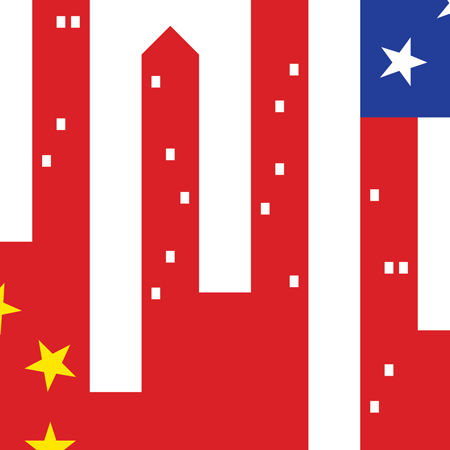Tech cities are leading the world. Testbeds for innovation and magnets for talent and venture capital (VC), they are not just vibrant places in which to live and work – they are also driving economies. The Savills top 30 Tech Cities are forecast to see gross domestic product (GDP) rise by 36% in the next decade, compared with 19% across other developed cities.
The third Savills Tech Cities Index measures more than 100 metrics to provide a ranking of the hottest tech locations worldwide.
Access to a deep talent pool and its reputation as a global centre of commerce have propelled New York to the top spot, overtaking San Francisco in the process.
London took third place overall. It performs especially well on our ‘buzz and wellness’ metric, and the UK capital remains the dominant tech hub in Europe, with three times more VC investment in 2018 than its nearest rival, Paris. Amsterdam is hot on London’s heels, rivalling its position as the global gateway to Europe. The Dutch capital is a vibrant global hub that benefits from a skilled, English-speaking workforce.
Strong competition is also coming from five Chinese cities that have been included in the rankings for the first time. Chinese tech cities are emerging fast, and now account for a higher share of VC than their US counterparts. Beijing recorded an average $34 billion of VC per year in the past three years – greater than New York and San Francisco. However, Shanghai is the highest-ranked Chinese city due to its international business environment and better quality of life.
Currently home to 291 million people, the 30 Tech Cities will add another 18 million residents in the next decade. As pressure builds on infrastructure, mobility becomes a critical success factor, prompting these cities to be at the forefront for shared mobility services such as self-driving vehicles.
To reflect this, our latest Index now includes metrics to cover this category. London ranks first for mobility overall, due to a combination of factors such as its integrated transport system. However, pollution remains a major issue, as does the ongoing challenge of upgrading the world’s oldest metro system.
For shared mobility, Chinese cities take the lead – dockless bike-share schemes such as Ofo and Mobike originated in China. Asian cities are also ahead when it comes to their modern metro systems, which are among the cheapest in the world and have onboard wi-fi and air conditioning.
For the final mobility pillar – the quality of the urban environment – it is European cities that perform well. Amsterdam, Copenhagen, Stockholm and Barcelona are among the world’s most cycle-friendly, while their compact size allows for shorter commutes, easier access to amenities and a better work/life balance.
The trend for co-working space goes hand in hand with the growth of the global tech sector. In 2018, co-working providers accounted for 11% and 14% of office market take-up in Dublin and London respectively. The average monthly cost for a desk in a private office is $590, and is highest in San Francisco at $1,050. While it is an area of the market that is emerging fast, there is still room for growth. Even in US markets, such as Manhattan, total co-working space is estimated at just 2% of all offices.
Savills Tech Cities Index 2019
- New York
- San Francisco
- London
- Amsterdam
- Boston
- Singapore
- Los Angeles
- Austin
- Stockholm
- Copenhagen
- Toronto
- Seattle
- Tokyo
- Paris
- Shanghai
- Berlin
- Beijing
- Tel Aviv
- Dublin
- Hong Kong
- Barcelona
- Melbourne
- Seoul
- Shenzhen
- Hangzhou
- Chengdu
- Santiago
- Buenos Aires
- Bengaluru
- Cape Town
What is a Savills Tech City?
It’s an important centre of tech within its region, a major recipient of VC investment, a vibrant city in which to live and work and a generator of, and magnet for, talent. It would also be on the shopping list for expanding global tech companies. The Index measures what makes a successful tech city. Our assessment for each city comprises more than 100 metrics, grouped into six categories: business environment; tech environment; city buzz and wellness; talent pool; real estate costs; and mobility. Each category is weighted to reflect its importance to the tech sector.
Business environment
- Investment
- Size of finance and business services sector
- Ease of starting a business
- R&D/innovation
- Physical linkages
- Cost of doing business (regulations, taxes, pay)
Tech environment
- Venture capital
- Size/value of tech sector
- Tech infrastructure
- Tech engagement
City buzz and wellness
- City wellness
- City buzz
- Cost of living
Talent pool
- Higher education
- Immigration and talent attractiveness
- City youthfulness
Real estate costs
- Cost of renting commercial and residential property
- Cost of co-working space
Mobility
- Shared mobility services
- Metro system
- Quality of infrastructure
Explore the cities in the Savills Tech Cities Index on our interactive website




